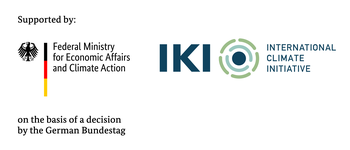Due to a lack of incentives as well as a range of technical and regulatory barriers, appropriate infrastructure for the recovery, collection, reuse, reclaimation and destruction of waste containing ODS and HFC remains scarce, especially in the Global South. The thematic working group (TWG) on technology solutions is a platform for sector experts and various stakeholders to exchange on ODS and HFC recovery, reclamation and destruction technologies. Are you active in the field of ODS and HFC recovery, reclamation and destruction technologies? Would you like to strengthen your collaboration with partners? During the 4th Working Group Meeting held in April 2024, the Destruction Protocol was presented. Click here to read the protocol providing comprehensive guidelines for the destruction of ODS/HFCs. Additionally, we hosted webinars to present the report on “ODS/HFC Reclamation and Destruction Technologies - Review for Article 5 Countries”. These webinars aimed to equip stakeholders with the knowledge and tools necessary. The Technology Working group came together once more on the 31st of October, with experts discussing about the life-cycle management of foams. Igor Croiset, expert from HEAT, presented about the negative environmental impacts of foams and the necessity to phase-out HCFCs and HFCs, replacing these with alternative technologies such as hydrocarbons and methyl formate. Another input came from Risto Ojala from UNIDO, who gave insights on alternative technologies to phase-out HCFCs and phase-down HFCs in the foam sector. Lastly, Melanie Valencia from UNIDO presented on the circular management of insulation in heat exchangers showing innovative designs focused on new materials, as well as the need to have an appropriate recovery mechanism in place in order to recycle refrigerators and ACs. Releasing ODS and HFC into the atmosphere becomes unthinkable after hearing about technology solutions offered by this working group. Experts from the private sector, civil society and public institutions from all over the world provide guidance on technologies and solutions for ODS and HFC recovery, reclamation, and destruction. Joint meetings, of which there have already been three, enable the discussion and presentation of studies, technologies, and solutions from various stakeholders. These included, for example the feasibility of selected ODS/HFC reclamation and destruction technologies for Article 5 countries and recycling and reuse/reclamation activities in China - and there is plenty of scope for presenting further exciting infrastructure and technology solutions! We are looking forward to working with you. The working group is coordinated by UNIDO.
Alliance members across private and public sectors come together in thematic working groups (TWG) to jointly work on holistic solutions needed to reduce ODS and HFC banks. Find out more about our TWG:
For an effective management of refrigerants and foams at end-of-life, suitable policy measures are required like venting bans or mandatory recovery.
Working towards the best technical solutions for ODS and HFC recovery,
Developing financial mechanisms for sustainable GHG mitigation measures in ODS and HFC banks.
Putting theory into practice and demonstrating how sustainable refrigerant management can be implemented.Technology Solutions
Objectives
Become a COPA member and join our thematic working group! Overview of the Work in 2024
Overview of the Work in 2023
CONTACTS
Mengjia Li, UNIDO
m.li2@unido.org
OUR WORKING GROUPS
Policy
Framework
Technology
Solutions
reclamation and destruction.
Financing
Mechanism
Implementation
Models
